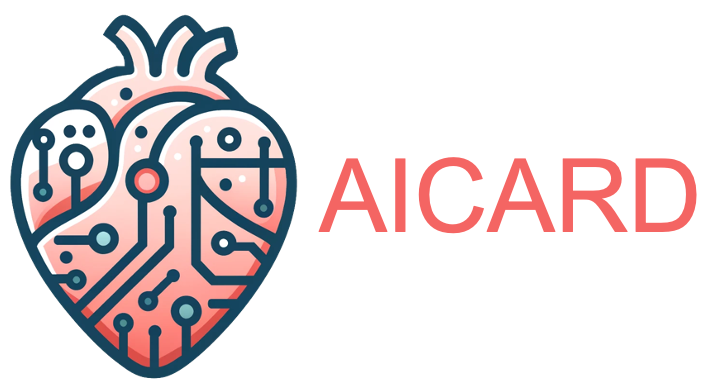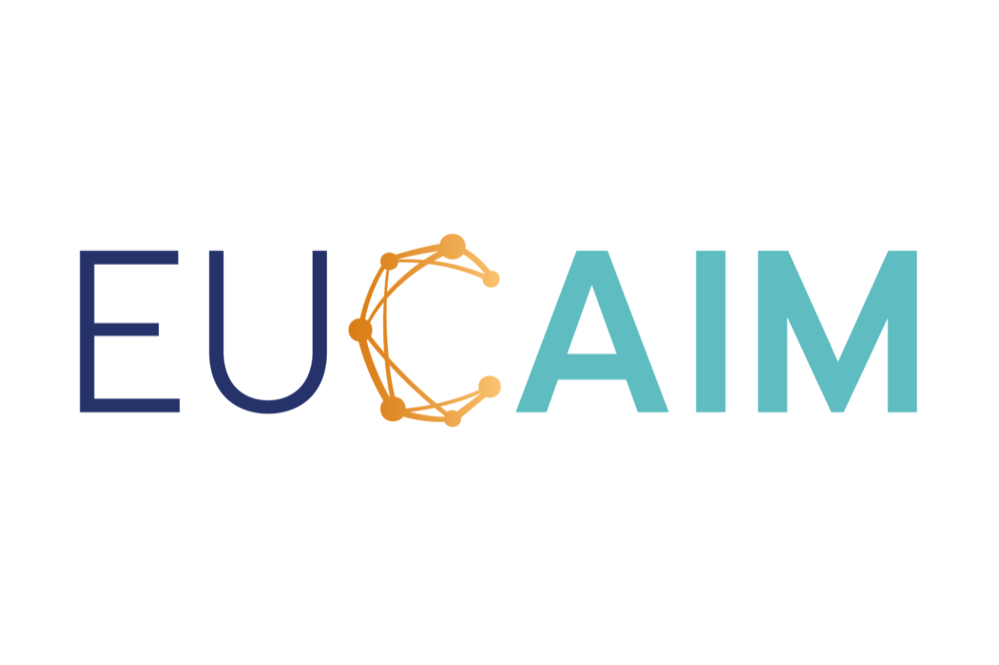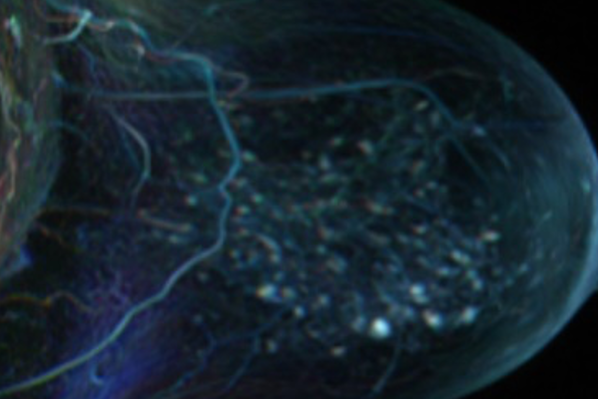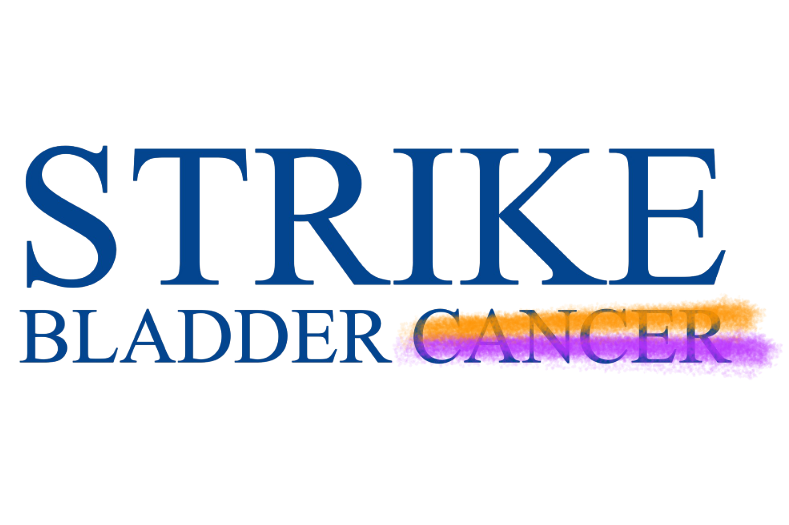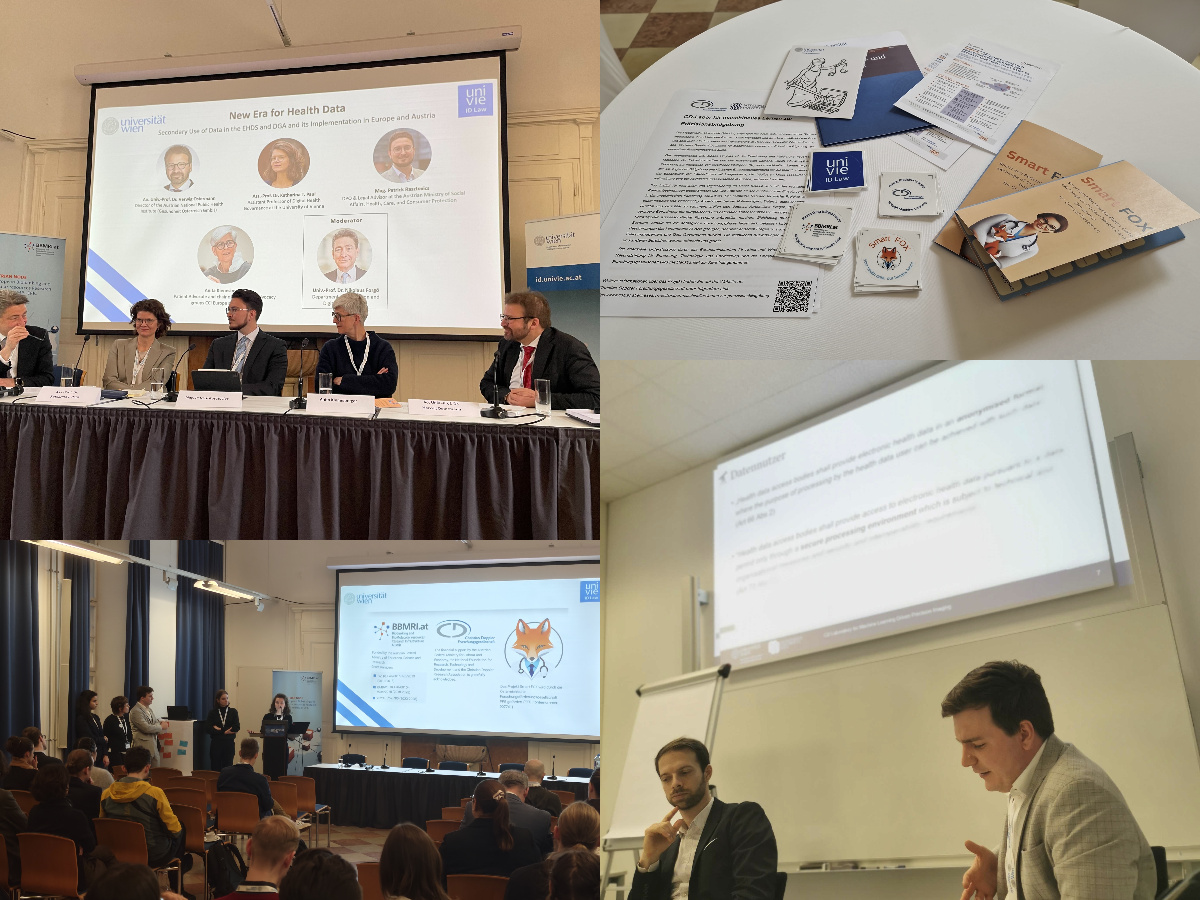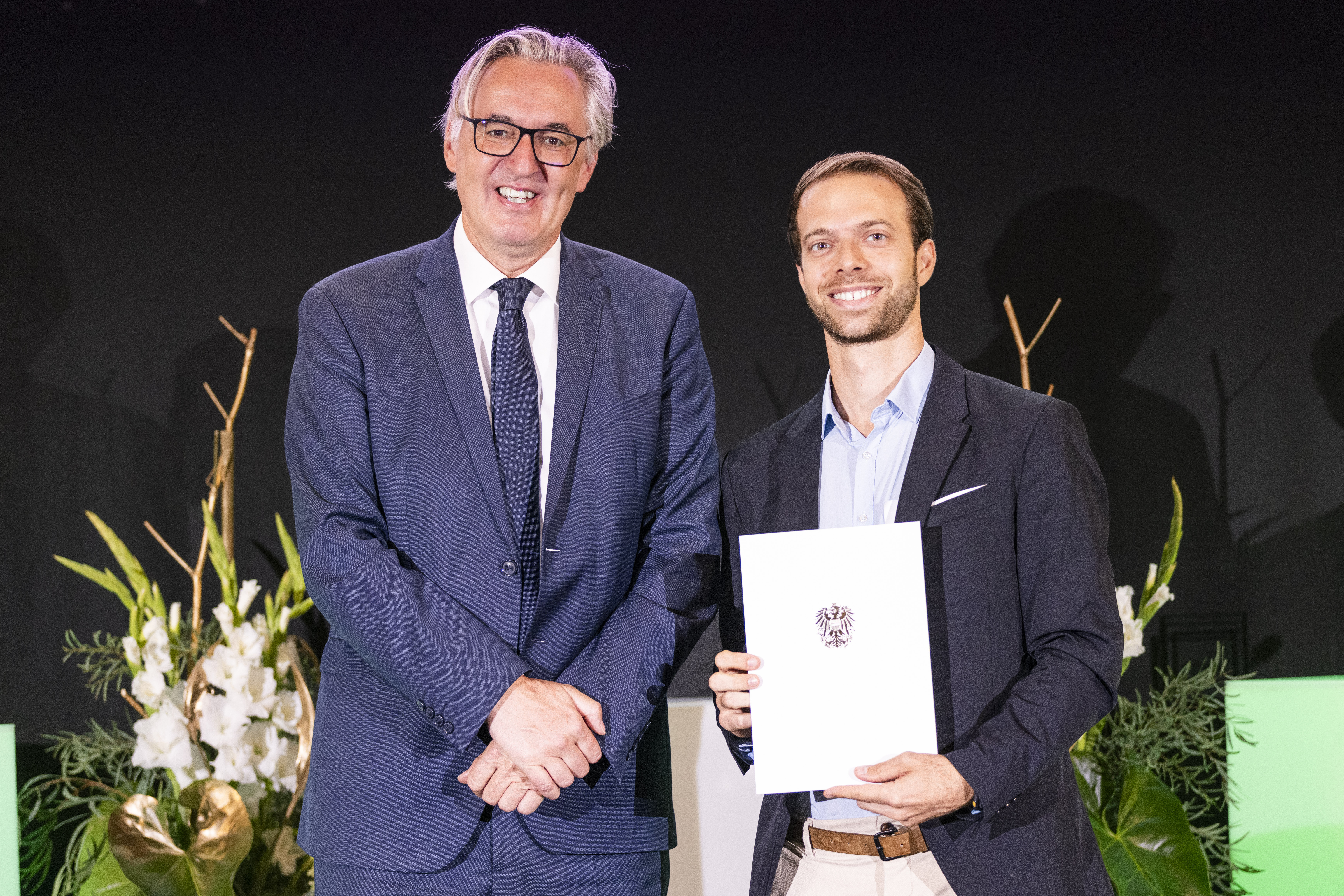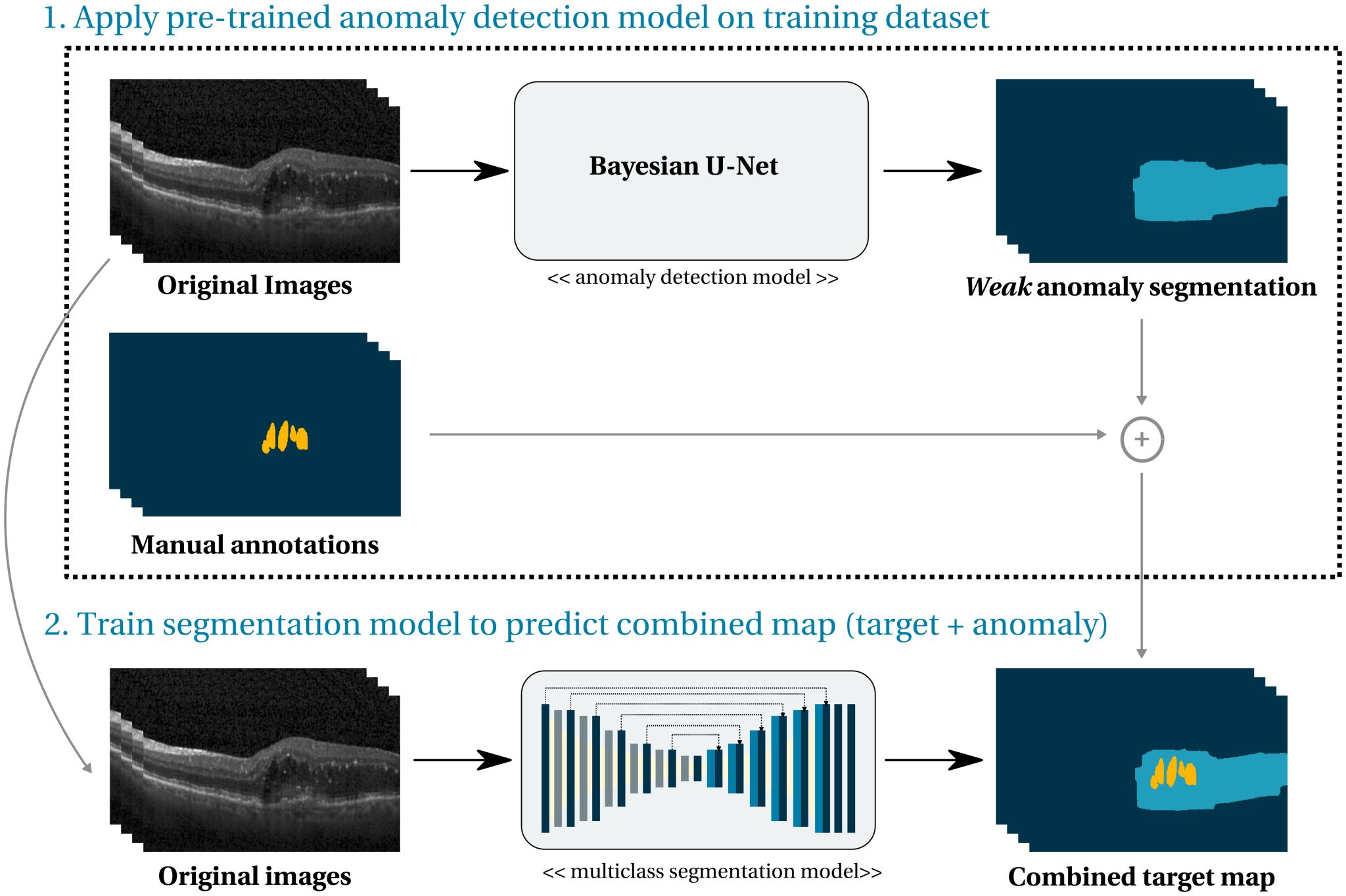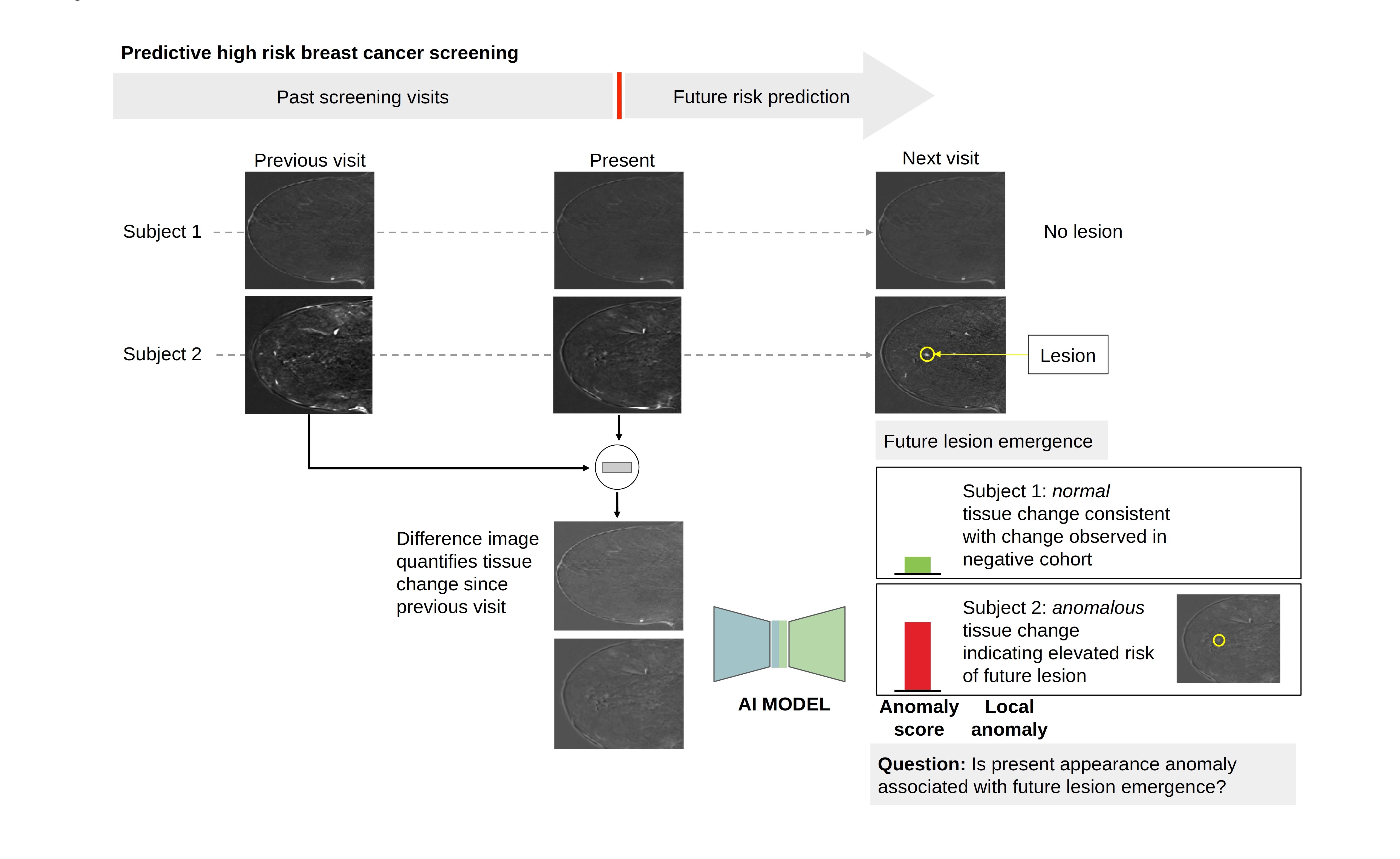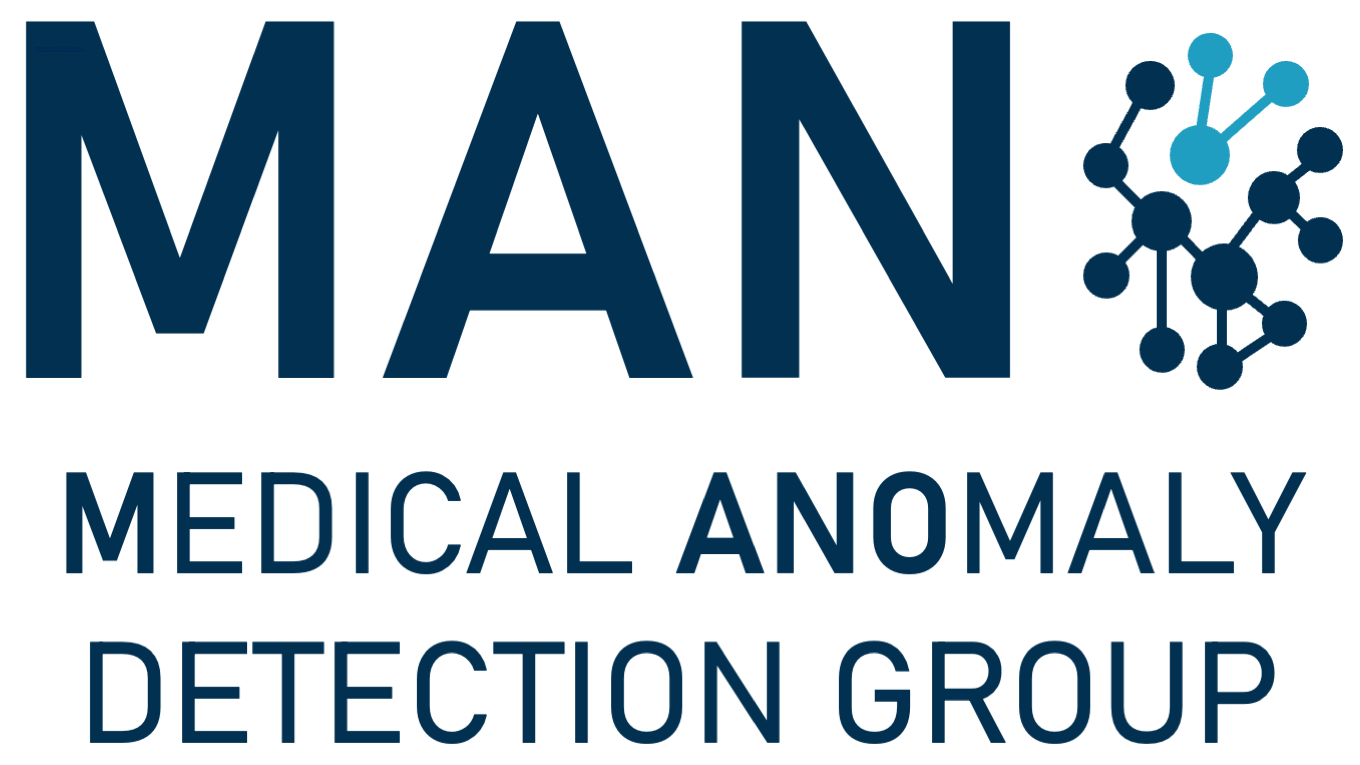
The Medical Anomaly Detection (MANO) group develops cutting-edge AI methods to analyze and understand medical data, operating under the motto "AI for Biomarker Discovery and Beyond". Our research spans a wide array of machine learning techniques, including anomaly detection, segmentation, unsupervised learning, domain generalization, and patient outcome prediction, with a special emphasis on detecting anomalies in medical imaging.
Running Projects
Selected Publications
- Seeböck, P., Orlando, J. I., Michl, M., Mai, J., Erfurth, U. S., & Bogunović, H. (2024). Anomaly guided segmentation: Introducing semantic context for lesion segmentation in retinal OCT using weak context supervision from anomaly detection. Medical Image Analysis, 103104.
- Mitic, B., Seeböck, P., Straub, J., Prosch, H., Langs, G. (2024). Detection of Emerging Infectious Diseases in Lung CT Based on Spatial Anomaly Patterns. In: Machine Learning in Medical Imaging. MICCAI-MLMI 2024. Lecture Notes in Computer Science, vol 15242. Springer, Cham.
-
Kocak, B., Akinci D’Antonoli, T., Mercaldo, N., Alberich-Bayarri, A., Baessler, B., Ambrosini, I., ... Seeböck, P., ... & Cuocolo, R. (2024). METhodological RadiomICs Score (METRICS): a quality scoring tool for radiomics research endorsed by EuSoMII. Insights into imaging, 15(1), 8.
- Holomcik, D., Seeböck, P., Gerendas, B. S., Mylonas, G., Najeeb, B. H., Schmidt-Erfurth, U., & Deak, G. (2023). Segmentation of macular neovascularization and leakage in fluorescein angiography images in neovascular age-related macular degeneration using deep learning. Eye, 37(7), 1439-1444.
-
König, M., Seeböck, P., Gerendas, B. S., Mylonas, G., Winklhofer, R., Dimakopoulou, I., & Schmidt-Erfurth, U. M. (2023). Quality assessment of colour fundus and fluorescein angiography images using deep learning. British Journal of Ophthalmology, 108(1), 98-104.
-
Burger, B., Bernathova, M., Seeböck, P., Singer, C. F., Helbich, T. H., & Langs, G. (2023). Deep learning for predicting future lesion emergence in high-risk breast MRI screening: a feasibility study. European Radiology Experimental, 7(1), 32.
-
Kocak, B., Chepelev, L. L., Chu, L. C., Cuocolo, R., Kelly, B. S., Seeböck, P., ... & Pinto dos Santos, D. (2023). Assessment of RadiomIcS rEsearch (ARISE): a brief guide for authors, reviewers, and readers from the Scientific Editorial Board of European Radiology. European Radiology, 1-5.
-
Seeböck, P., Vogl, W. D., Waldstein, S. M., Orlando, J. I., Baratsits, M., Alten, T., ... & Schmidt-Erfurth, U. (2022). Linking function and structure with ReSensNet: predicting retinal sensitivity from OCT using deep learning. Ophthalmology Retina, 6(6), 501-511.
-
Schürer-Waldheim, S., Seeböck, P., Bogunović, H., Gerendas, B. S., & Schmidt-Erfurth, U. (2022). Robust fovea detection in retinal OCT imaging using deep learning. IEEE Journal of Biomedical and Health Informatics, 26(8), 3927-3937.
-
Schwarzenbacher, L., Seeböck, P., Schartmüller, D., Leydolt, C., Menapace, R., & Schmidt‐Erfurth, U. (2022). Automatic segmentation of intraocular lens, the retrolental space and Berger's space using deep learning. Acta Ophthalmologica, 100(8), e1611-e1616.
-
Hofer, D., Schmidt-Erfurth, U., Orlando, J. I., Goldbach, F., Gerendas, B. S., & Seeböck, P. (2022). Improving foveal avascular zone segmentation in fluorescein angiograms by leveraging manual vessel labels from public color fundus pictures. Biomedical Optics Express, 13(5), 2566-2580.
- Philipp Seeböck, José Ignacio Orlando, Thomas Schlegl, Sebastian M. Waldstein, Hrvoje Bogunovic, Sophie Klimscha, Georg Langs*, and Ursula Schmidt-Erfurth. (2019). Exploiting Epistemic Uncertainty of Anatomy Segmentation for Anomaly Detection in Retinal OCT. in IEEE Transactions on Medical Imaging, 39(1), 87-98.
- Schlegl, T., Seeböck, P., Waldstein, S. M., Langs, G., & Schmidt-Erfurth, U. (2019). f-AnoGAN: Fast unsupervised anomaly detection with generative adversarial networks. Medical Image Analysis, 54, 30-44.
-
Romo-Bucheli, D., Seeböck, P., Orlando, J. I., Gerendas, B. S., Waldstein, S. M., Schmidt-Erfurth, U., & Bogunović, H. (2019). Reducing image variability across OCT devices with unsupervised unpaired learning for improved segmentation of retina. Biomedical Optics Express, 11(1), 346-363.
-
Seeböck, P., Waldstein, S. M., Klimscha, S., Bogunovic, H., Schlegl, T., Gerendas, B. S., ... & Langs, G. (2018). Unsupervised identification of disease marker candidates in retinal OCT imaging data. IEEE Transactions on Medical Imaging, 38(4), 1037-1047.

